‘More than 41 million Americans are also struggling with fewer resources while working as unpaid family caregivers for long, often undetermined, time periods. And at least one million of these caregivers are located in New York City.’
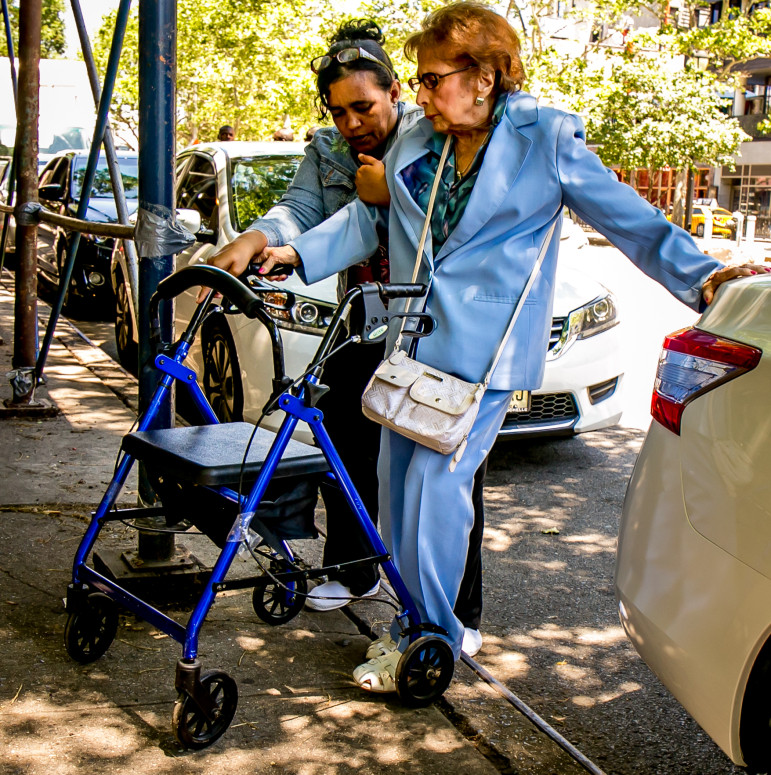
Adi Talwar
A woman and a caregiver on their way to a senior center in Manhattan in 2015.When the Harvard Business Review cited caregiving responsibilities as a contributing cause of over 3 million women leaving the workplace in the past 18 months, advice was included for returning to the workforce. Such meaningful advice is valuable to many, but what about the millions of Americans who have no idea when they can return to work as their lives revolve around unpaid family caregiving? What about people, like me, who have worked as unpaid family caregivers for over a decade?
Every few months, my mom is hospitalized, usually after becoming injured due to a fall, or as a result of a flare up of one of her several underlying health conditions. Generally, each hospitalization begins in the closest Emergency Department and brings new challenges. Her hospital stays are usually a relief because she is being closely monitored. But her discharge dates are often fluid, yet abrupt, and at the mercy of non-disease related factors, like having to wait to get a certain scan, a physician’s schedule, or the hospital’s transition to a new resident physician. Too often, my mom and I have 24 hours to decide if she will go to a nursing home, rehab, my home, or back to assisted living with a full-time caregiver.
As a trained health social worker with a large support network, which includes my family and employer, I can better navigate these complex and dysfunctional systems. My well-insured mom has a choice of providers and hospitals. She was also a nurse for 50 years, and is still able to catch medication and treatment errors.
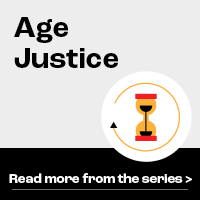
My family has financial stability, emotional support, and medical expertise—but we still struggle. More than 41 million Americans are also struggling with fewer resources while working as unpaid family caregivers for long, often undetermined, time periods. And at least one million of these caregivers are located in New York City.
In 2017, the New York City Department for the Aging (DFTA) found that one-third of unpaid caregivers in the city, most of whom were women at least 50 years old, were financially unstable while providing 30 hours of care per week at minimum.
Caregiving is intense and unpredictable work that can take a serious toll on mental well-being. A recent study found that 70 percent of caregivers reported experiencing mental health issues, such as anxiety and depression. For multi-generational caregivers who provide care for both their parents and children, serious suicidal thoughts occured at 12 times the rate of noncaregivers. Additionally, 6 in 10 family caregivers are expected to perform medical tasks typically performed by nurses, including injections, tube feedings, giving medications, and catheter and ostomy care. Family caregiving work continues to exacerbate health inequities.
The financial stressors caused by the epidemic of unpaid family caregiving work only makes matters worse for care providers and family members receiving care. In the state of New York, over 2 billion hours of unpaid caregiving work is being provided, equating to over $31 billion dollars in lost wages.
The public-private partnerships between the New York State Office of the Aging and the New York State Departments of Labor and Health are already modeling leadership that will meaningfully support caregivers by collaborating with businesses to better assist employees who are unpaid caregivers. New York also has the Paid Family Leave policy that provides 12 weeks of paid-time off for family caregivers while protecting them from retaliation, losing their jobs, or loss of health insurance.
However, there is still more work to be done, which has been outlined in New York City’s Department for the Aging plan to support unpaid caregivers. Within the plan is a vision that includes leveraging and expanding awareness about the resources that exist for caregivers.
To improve access to available resources, investing in high-quality, social work-led transitional care with nursing support should be part of the solution. This would help to ensure that the care received aligns with the needs of patients and their caregivers after they leave the hospital.
As a social worker, I am confident in our expert ability to wade through disparate and dysfunctional systems. Social workers are specifically trained to look at the whole person and focus on the social determinants (such as transportation, food, and safety) that impact human health and the ability to seek care. With social work-led transitional care interventions, like Rush’s Bridge Model or Caregiver Initiative in Chicago, people can seek help when they need it most.
Along with resource support, unpaid caregivers can keep advocating for compensation by reaching out to their elected officials after calculating their caregiver salary. Then, prepare a formal invoice, and write a letter to the state senators. For what it’s worth, I could use the extra $20,000 of unpaid wages based on my calculations.
Teresa Moro is an assistant professor in the Department of Social Work in the College of Health Sciences at Rush University Medical Center in Chicago. She is also a Public Voices Fellow of the OpEd Project in partnership with Rush University.


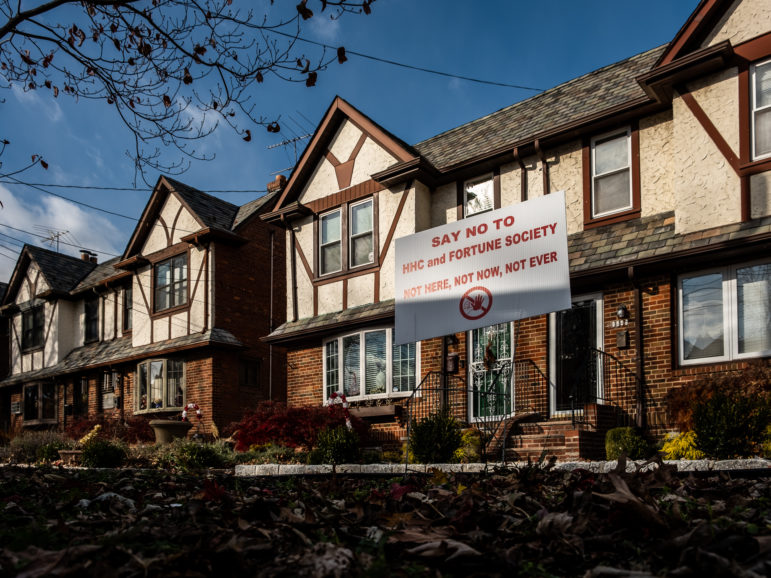
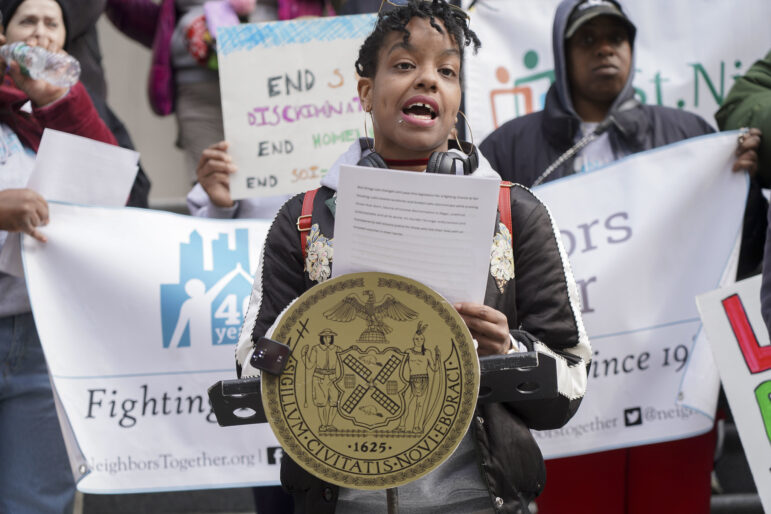
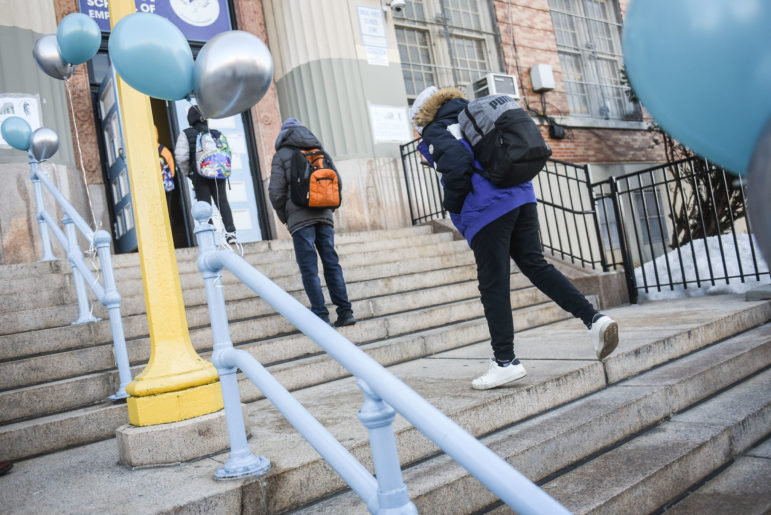




One thought on “Opinion: Unpaid Family Caregivers Need More Support”
Shouldn’t your mother pay you with her social security check and whatever other income she may have?